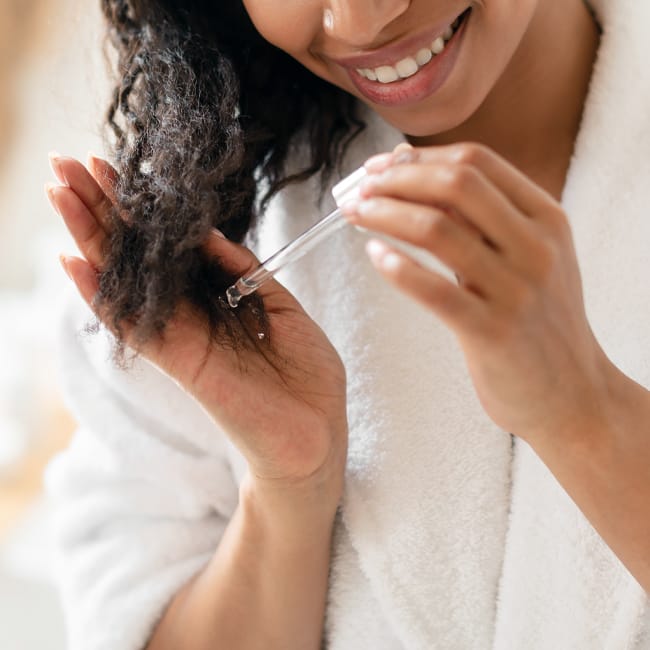In the last few years, we’ve witnessed one celeb and beauty influencer after another showing off their best skincare routines — regimens that often consist of a dozen steps and myriad expensive products. But in this maximalist era of skincare, we may have lost sight of what matters most — quality over quantity and an emphasis on ways to prevent future damage to the skin. If you’re over 40, your goals may have shifted to include figuring out the best ways to minimize the appearance of fine lines and wrinkles and keep discoloration out of your life.
This is a time when it becomes even more important to weed out the effective skincare products from the nice-to-have-but-not-quite-so-effective ones. Experts like Angie from the YouTube channel “Hot and Flashy” can help.
Here are five skincare mistakes you could be making that may actually be aging your skin.


Not Applying Enough Sunscreen
Even if you’re faithfully applying sunscreen daily — and you do deserve a pat on the back for that! — it’s as important to apply ENOUGH sunscreen. This means applying a nickel’s worth of sunscreen to the face, according to many experts, and then patting it in gently instead of rubbing it in — an application method that will ensure it is more evenly spread.
Be aware of the areas of your face that you may be missing, such as the tips of your ears or along your jawline or right above your lip. And take care to apply SPF 30 or higher each day, even during the winter.

Not Using a Retinoid
Retinol is a vitamin A derivative that has been the subject of several studies that prove it is a gold standard ingredient in skincare that can help boost collagen production and actually eliminate discoloration and some fine lines, while minimizing the appearance of deeper wrinkles.
Retinoids come in a few forms and not all are equally effective. The most potent version will require a dermatologist’s prescription, but there are plenty of drugstore serums and moisturizers that contain less potent formulations of retinol. No matter what you use, it’s important to start using it at a younger age to help combat signs of aging (it’s always easier to prevent skin damage than it is to treat it). It may also be important to invest in a quality cream moisturizer that you can apply to your skin at night after retinol, as this ingredient is known to be drying and sensitive on many skin types.

Not Being Consistent
Skincare takes time — sometimes several months — to show results on your skin. Consistency is important, and if you are switching from one product to another and giving up on ingredients, you aren’t giving them enough time to help generate new collagen or promote a more hydrated, stronger skin barrier.
If a product is not irritating your skin and all else is checking out with it, stick with it — especially if it’s a well-known effective ingredient like retinol or vitamin C.

Trying Too Many New Products
This mistake is a common one, especially as we continue to be bombarded by multi-product routines in the media. You may get the idea that more is more in skincare, but that isn’t always the case. If you are using a ton of new products, and starting them all at once, you run the risk of skin irritation, and worse, not having a clue which of those products is the culprit.
A better plan if you want to try on a few new ingredients is to introduce products one at a time and give them a little time to see if they work well on your skin.

Using Too Much of a Good Ingredient
A lot of people are exfoliating way too often, according to Angie. They may not be realizing that their cleanser and serum contain exfoliants like lactic or glycolic acids, so before or after using those, they may also be adding a traditional chemical or physical exfoliant to their routine. The result can be over exfoliation, the markers of which include parched, dry, peeling skin — pretty much the opposite result than you intended with exfoliation.
Reading ingredient labels on your skincare is the best way to learn what to use when so that you don’t over exfoliate or add too much of one ingredient, like retinol, to your skincare routine. Moderation is key when it comes to skincare, and oftentimes less is so much more.


























